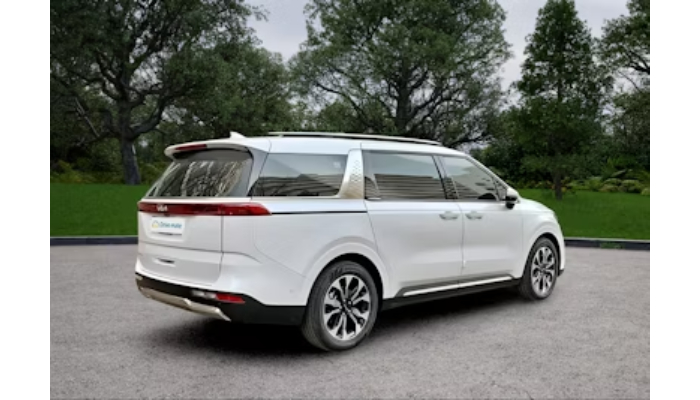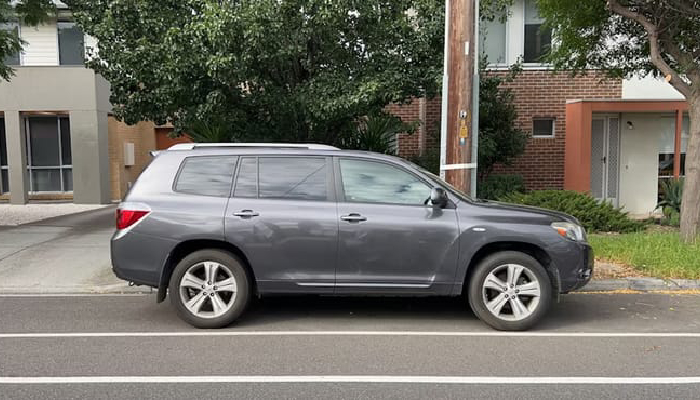What To Know Before Renting A Car For The First Time In Australia?
Renting a car in Australia for the first time can be an exciting and convenient way to explore the country, especially with its vast landscapes, coastal drives, and iconic road trips like the Great Ocean Road or the Outback adventure. However, before you hit the road, it’s important to be well-prepared. Understanding the basics of car rental in Australia can ensure a smooth and enjoyable experience, helping you avoid potential pitfalls and unexpected expenses. This guide will walk you through everything you need to know about renting a car in Australia for the first time.
Understanding The Rental Process
When Car Rental in Australia, the process can vary slightly depending on the rental agency, but there are some common steps you will encounter.
- Booking the Car: You can book a rental car online or at the rental counter upon arrival. However, booking in advance often guarantees better rates and availability, especially during peak travel seasons like school holidays or the Christmas period.
- Picking Up the Car: At the rental location, you’ll need to present your driving license, a credit card for payment, and sometimes proof of travel plans (e.g., a return flight ticket). Make sure to inspect the car thoroughly for any pre-existing damage and document it with the rental agent.
- Returning the Car: Return the vehicle by the agreed-upon time and location. Most rental agencies charge additional fees for late returns, so be mindful of your drop-off time. Some companies offer flexible return options, including after-hours drop-offs.
Driving License Requirements
One of the most important things to know before renting a car in Australia is the driving license requirement.
- International Visitors: If you are a tourist, you will typically need an international driving permit (IDP) in addition to your home country’s driver’s license. However, for most countries, an IDP is not required as long as your license is in English or features an English translation. Check with your car rental agency for specific requirements before booking your car.
- Age Requirements: Most car rental companies in Australia require drivers to be at least 21 years old, though the minimum age may vary. Drivers under 25 may face additional “young driver fees,” so it’s essential to check for any extra charges that might apply. Additionally, some companies have an upper age limit (usually around 75 or 80), so it’s worth confirming that your age falls within their rental criteria.
Car Rental Insurance
Insurance is a critical aspect of car rental, and it’s important to fully understand your coverage before signing the rental agreement.
- Basic Insurance: Most car rental companies in Australia provide basic insurance, which typically includes Collision Damage Waiver (CDW) and Theft Protection. However, this insurance often comes with a high excess (deductible), meaning you may still be liable for a portion of the damages if the car is damaged or stolen.
- Additional Coverage: You can usually purchase extra coverage, such as Super Collision Damage Waiver (SCDW) or a Personal Accident Insurance policy, to reduce your excess liability. While this increases the cost of your rental, it can offer peace of mind, especially for first-time renters unfamiliar with the roads.
- Excess Reduction: Some car rental agencies offer excess reduction packages, which allow you to lower or eliminate the deductible in case of an accident or damage. Always check what your insurance covers and whether you need additional coverage before accepting any offers.
Driving Rules And Regulations In Australia
Australia has a strict set of road rules that every driver must adhere to. Familiarizing yourself with the local driving laws is crucial for a safe and legal rental experience.
- Driving on the Left Side: In Australia, you drive on the left side of the road. If you come from a country where driving on the right is the norm, it may take some time to adjust, so be extra cautious, especially when turning or overtaking.
- Speed Limits and Road Signs: Speed limits in Australia are strictly enforced, and they vary depending on the type of road. In urban areas, the speed limit is typically 50 km/h (31 mph), while on highways and rural roads, it can be 100 km/h (62 mph) or 110 km/h (68 mph). Always follow posted signs, as fines for speeding can be hefty.
- Alcohol and Drug Limits: The legal blood alcohol concentration (BAC) limit for drivers in Australia is 0.05%, which is lower than in many other countries. If you’re planning to drink, it’s safest to avoid driving altogether.
- Mobile Phone Use: Using a mobile phone while driving is illegal in Australia unless you have a hands-free system. Fines can be issued for any violation, so ensure your phone is properly mounted or turned off when you drive.
Choosing The Right Car Rental For Your Needs
Australia offers a wide range of vehicles for rent, from compact cars to larger SUVs and 4x4s for adventurous trips. Choosing the right car depends on your travel plans, comfort preferences, and driving experience.
- Small Car vs. SUV: If you’re traveling within cities or between well-maintained highways, a compact or economy car should suffice. However, if you plan on exploring rural areas, beaches, or rugged terrain, consider renting a 4×4 or SUV to handle rough roads.
- Automatic vs. Manual: Most cars in Australia are automatic, but manual transmission cars are also available. If you’re used to driving an automatic, make sure to specify that when booking, as it’s a standard preference for most international drivers.
- Fuel Considerations: Be aware of the car’s fuel efficiency and the cost of fuel in Australia. Gas stations are widely available, but in more remote areas, it’s essential to plan your refueling stops ahead of time.
Additional Charges To Watch Out For
When renting a car in Australia, several extra charges can quickly add up. Here are some common fees to be aware of:
- Additional Driver Fees: If you plan on sharing the driving, check if there’s an additional fee for adding extra drivers to the rental agreement.
- One-Way Fees: If you’re picking up your rental in one city and dropping it off in another, some companies charge one-way fees, which can be expensive.
- Airport Surcharges: Renting a car from an airport location may come with extra surcharges, so it’s a good idea to compare prices between airport and city rental offices.
- Toll Roads: Australia has toll roads in several major cities, including Sydney and Melbourne. Most rental cars are equipped with electronic tolling devices, but check with the rental agency on how tolls will be billed to avoid unexpected charges.
Tips For First-Time Renters In Australia
- Check the Car for Damage: Before leaving the rental lot, thoroughly inspect the car for any existing damage and take photos. This helps protect you from being charged for damage that was not caused by you.
- Understand the Fuel Policy: Most car rental agencies have either a full-to-full or full-to-empty fuel policy. Make sure you know the fuel policy to avoid paying for more fuel than you actually used.
- Plan Your Route: While Australia’s roads are well-maintained, rural areas can be remote and sparsely populated. Make sure to have a good GPS or offline map app, especially if you plan on driving in less populated areas.
- Keep Emergency Numbers Handy: Know the emergency contact numbers, especially for roadside assistance, in case you run into trouble during your trip.
Conclusion
Car Rental in Australia for the first time can open up a world of adventure, but it’s important to approach the process with knowledge and awareness. By understanding the requirements, costs, and responsibilities, you can enjoy a stress-free and memorable experience as you explore one of the most beautiful countries in the world. Whether you’re cruising along the Great Barrier Reef or journeying through the Outback, renting a car in Australia can offer the freedom to make the most of your trip.





